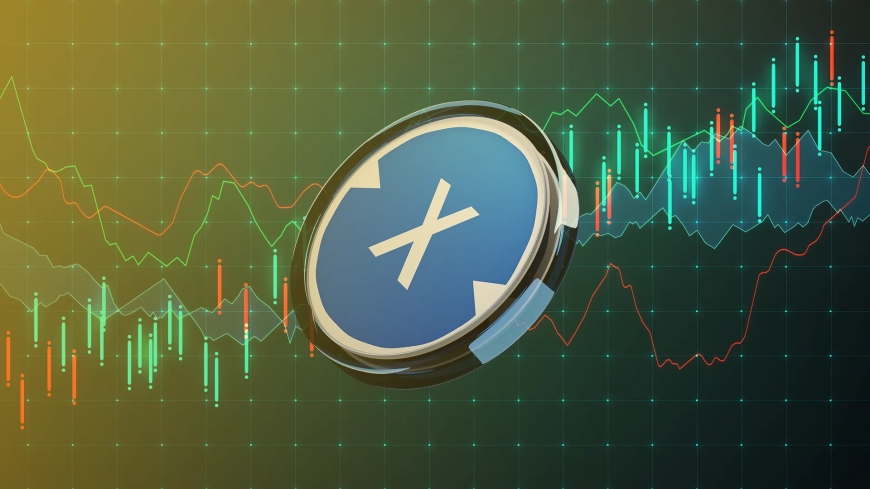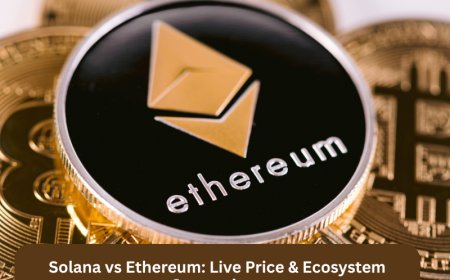Is XDC a Good Investment? A Deep Dive Into XinFin’s Potential in 2025 and Beyond

As blockchain adoption continues to evolve, smart investors are looking beyond the hype of meme coins and into projects that solve real-world problems. One such project gaining quiet momentum is XDC Network, powered by the native token XDC.
But the big question remains: Is XDC a good investment?
In this in-depth guide, well explore XinFins technology, market relevance, long-term potential, and investment risks helping you determine whether XDC deserves a place in your crypto portfolio.
? What Is XDC?
XDC (XinFin Digital Contract) is the native token of the XDC Network, a hybrid blockchain platform built to connect financial institutions, businesses, and decentralized technologies. Unlike many crypto projects focused solely on speculation or DeFi, XinFin is designed for enterprise use cases such as:
-
Cross-border payments
-
Trade finance
-
Tokenization of real-world assets
-
Interoperable smart contracts
-
ISO 20022 compliance for financial messaging
The XDC Network combines the transparency of public blockchains with the security and privacy of private networks, making it ideal for industries that require both compliance and innovation.
? XDC at a Glance
| Metric | Value (as of mid-2025) |
|---|---|
| Ticker | XDC |
| Circulating Supply | ~13 billion |
| Max Supply | 37.5 billion |
| Consensus | XDPoS (Delegated Proof of Stake) |
| Speed | 2,000+ TPS |
| Average Fees | Near Zero |
| Use Cases | Trade finance, smart contracts, tokenization, stablecoin rails |
? Why XDC Could Be a Smart Investment
Lets explore some compelling reasons why XDC might be a strong investment, especially if youre thinking long-term.
1. Real-World Utility
XDC isnt trying to reinvent the wheel its upgrading it. The network is built for real-world enterprise adoption, especially in industries like:
-
Trade Finance (a multi-trillion dollar industry)
-
Supply Chain Transparency
-
Tokenized Assets
-
Regulated Stablecoins
Through platforms like TradeFinex, the XDC Network is already helping businesses digitize and streamline finance operations.
2. ISO 20022 Compatibility
XDC is ISO 20022 compliant, meaning its aligned with the global banking messaging standard being adopted by SWIFT, Ripple, and other major financial entities. This increases its chances of being integrated into regulated financial ecosystems in the future.
3. Eco-Friendly and Scalable
Using XDPoS, the network is energy-efficient, boasting high transaction speeds with minimal environmental impact a key concern for both ESG investors and institutions.
4. Strong Strategic Partnerships
XDC Network is already integrated with R3 Corda, a blockchain used by over 300 financial institutions. The collaboration allows enterprises to settle digital assets on XDC as a settlement layer giving it a functional role in the world of institutional finance.
5. Low Fees and High Speed
With average fees of less than $0.00001 per transaction, XDC is one of the most cost-effective blockchain networks in the market. This makes it attractive for micropayments, token transfers, and cross-border remittances.
6. Staking Opportunities
XDC holders can delegate their tokens to nodes and earn passive income via staking. This gives long-term holders another incentive to keep their tokens locked, reducing circulating supply.
?? What Are the Risks of Investing in XDC?
No investment is without risk and XDC is no exception. Lets cover a few concerns you should be aware of:
1. Low Retail Visibility
Despite strong tech, XDC lacks the brand recognition of projects like Ethereum or Cardano. This can limit short-term price surges and speculative hype.
2. Limited Major Exchange Listings
XDC isnt available on every top-tier exchange like Coinbase or Binance. This affects liquidity and exposure, although it is available on KuCoin, Bitfinex, Uphold, and others.
3. Enterprise Focus May Delay Returns
Since XDC is enterprise-first, growth may be slower than hype-based coins. Adoption could take years to scale, depending on regulation and institutional readiness.
4. Regulatory Uncertainty
As with all blockchain networks involved in finance, regulatory risks apply especially around tokenized assets, banking compliance, and international money transfers.
? XDC Price and Performance History
| Year | Average Price Range | Key Developments |
|---|---|---|
| 2020 | $0.001 $0.005 | Network development, low adoption |
| 2021 | $0.02 $0.18 | Bull run, TradeFinex expansion |
| 2022 | $0.04 $0.08 | Bear market, ISO 20022 positioning |
| 2023 | $0.03 $0.06 | XDC joins top ISO-compliant blockchains |
| 2024 | $0.05 $0.07 | Partnerships grow, network matures |
| 2025 | $0.06 $0.12 | Staking demand rises, enterprise growth visible |
? XDC Price Forecast (20252030)
While this isnt investment advice, here are speculative estimates based on utility and market growth:
| Year | Conservative | Moderate | Bullish |
|---|---|---|---|
| 2025 | $0.10 | $0.20 | $0.50 |
| 2026 | $0.25 | $0.50 | $1.00 |
| 2030 | $1.00 | $2.50 | $5.00+ |
For XDC to hit $5, its market cap would need to exceed $125 billion, assuming its circulating supply remains around 25 billion. While ambitious, this is possible if global trade finance continues moving toward blockchain.
? Final Verdict: Is XDC a Good Investment?
If you're looking for a fundamentally strong, undervalued altcoin with:
-
Real-world use cases
-
Institutional-grade partnerships
-
Scalable and eco-friendly infrastructure
-
ISO 20022 integration
-
Passive income via staking
Then yes, XDC may be a smart long-term investment especially for those who believe in the tokenization of traditional finance and the need for blockchain in real-world trade.
However, due diligence is essential. Diversify your portfolio and be prepared for a long-term hold if you want to maximize the potential of XDC.









































